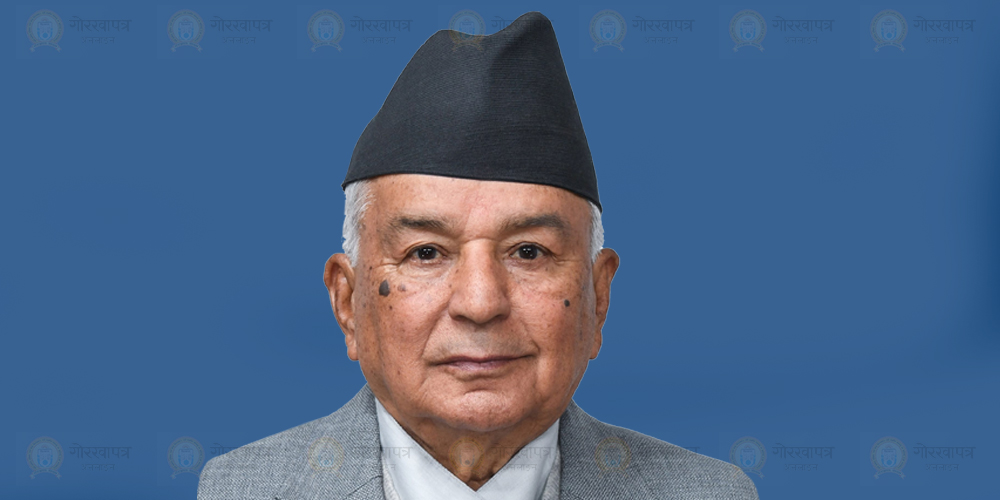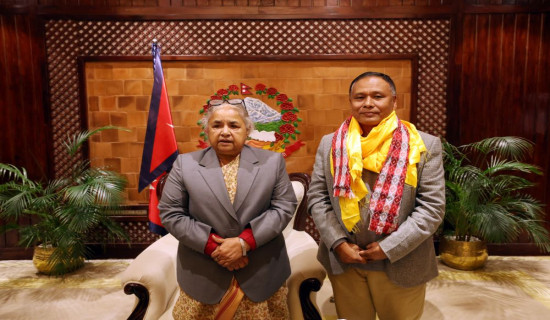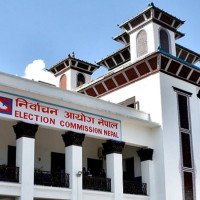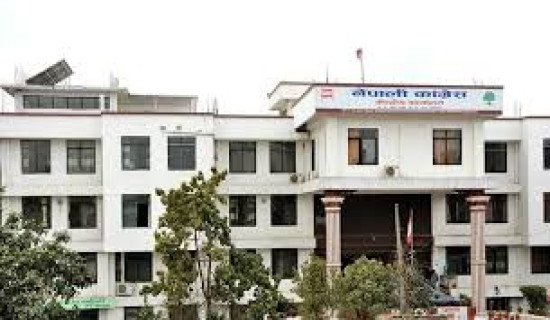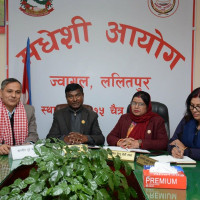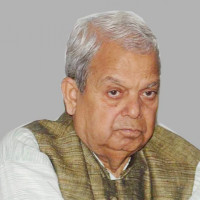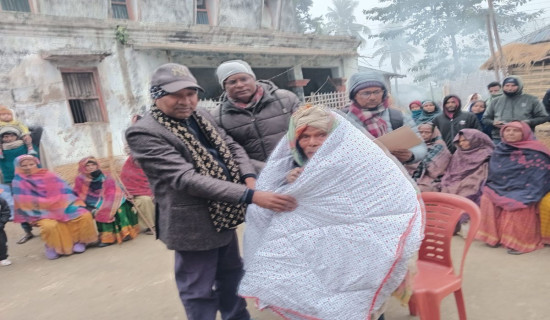- Thursday, 8 January 2026
President calls for unity to tackle climate change
By A Staff Reporter,Kathmandu, Nov. 14: President Ramchandra Paudel has said that mountain regions are the most vulnerable to climate change and people are compelled to migrate from the mountain regions due to it.
Speaking at the high-level session organised by Nepal, on “Mountains in Peril: Addressing Loss and Damage in the Himalaya,” organised during the 29th Conference of the Parties (COP 29) to the UN Framework Convention on Climate Change (UNFCCC) on Wednesday, he said that climate change is disrupting ecological balance and threatening the region’s habitability.
He also thanked the participants including ministers of different countries and senior delegates for accepting Nepal’s invitation and actively participating in the event.
He said, “As climate change is a common challenge, we organised this programme to forge a common understanding and unite our efforts to deal with it.”
“It is our belief that, when the mountainous nations come together on climate change, we can best diagnose the problem and work out solutions,” he said.
He further said that global warming and climate change might eventually wipe out humanity from the mountains. “If we do not adequately focus on the issue and take action now, the future generations will not forgive us. I urge all nations and the entire global community to keep this in mind and initiate action,” he said.
Recalling a glacial lake outburst near Mount Everest (Sagarmatha) the world’s highest peak, that swept away entire Thame village, the President said that the outburst occurred in an area where human activity was virtually non-existent.
Similarly, more than 500 people lost their lives due to climate-related disasters alone in Nepal in the last three months, and the damage to infrastructures, and private properties was worth nearly US $1 billion, he shared.
“No one knows when such disasters befall, but helping the affected country is the religion of humanity. We, Nepalis, believe that everyone should remain happy. The climate change impacts in mountainous countries have started to affect coastal countries. Therefore, I urge for the unity of coastal and mountain countries to implement common programmes,” President Paudel said.
“I believe the developed countries will do everything possible to provide support to the vulnerable mountainous nations, and I am confident that COP 29 will make concrete progress in this direction. I also call for urgent operationalisation of the loss damage fund, established by the decision of COP 28, and make it an integral component of NCQG,” the President said.
He also thanked the host of COP 29, Azerbaijan, for attaching high priority to the mountain issues.
“Finally I like to repeat a chant from the Rigveda regarding all-encompassing peace. May there be peace in the heavens, in the sky, in the earth, in water, in plants, in trees and among gods. May there be peace in inner consciousness and let peace and only peace pervade everywhere,” he said.
Meanwhile, RSS adds: President Paudel has drawn the world’s attention to address the problems of climate change and poverty. Addressing the high level session organized by Kyrgizstan in course of ongoing COP29 in Baku, today, President Paudel viewed the climate change sufferers need justice. “The youths from mountainous countries have migrated elsewhere due to climate change impact, while the poor, women, children and elderly are suffering the worst. The programmes to alleviate poverty and climate change would be launched together to address these twin issues.” He further reminded that the climate change is largely caused by the activities and carbon emissions by the developed countries, but the poor people from mountainous countries are bearing the brunt. “I hope the COP29 will be successful to guarantee justice to the victims,” President Paudel said. As the climate change indicators are breaking records every years, the people in the mountain countries are bound to live in the harshest condition, he said, adding that more than 35 households of mountainous Thame village of Solukhumbu district were displaced due to GLOF (glacial lake outburst floods) in Nepal last August. Similarly, the floods and landslides occurred in the monsoon took the lives of over 500. “The suffering and trauma the disasters caused is enduring. Proper evaluation and further preparedness is imperative to minimise the loss and damage,” he said. Both Nepal and Kirgizstan are mountainous countries, they both share similar plights when it comes to climate change. The event was also addressed by President of Kirgizstan, President of Mongolia and Foreign Minister of Azerbaijan, among others. Earlier, President Paudel had addressed the COP29 on Monday.

